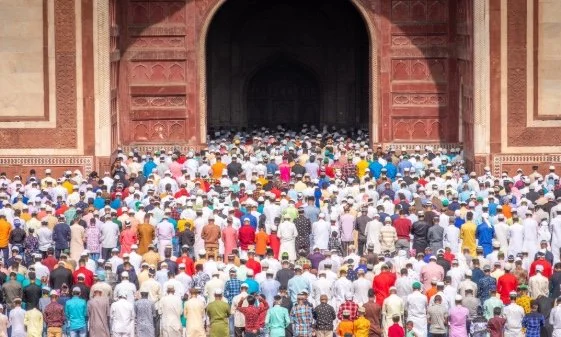Is Uttar Pradesh’s Crackdown on ‘I Love Muhammad’ Just and Wise?
FIRs, Arrests and Demolition Follow Complaints Against Banners
October 4, 2025
Uttar Pradesh has launched a series of criminal and administrative actions after banners reading “I Love Muhammad” appeared during a Milad-un-Nabi procession in Kanpur. Following complaints that the banners had been placed in new locations and that some other posters were allegedly removed, police registered FIRs, made arrests and moved to demolish properties linked to those accused. The government’s response raises serious concerns about proportionality, neutrality and wisdom in governance.
Media reports say police filed cases and made arrests across districts after some local residents and groups objected to the placement of the banners. In Bareilly, protests linked to the issue prompted a 48-hour internet shutdown, reportedly to curb rumours and prevent mobilisation. Authorities marked several properties connected to cleric Tauqeer Raza Khan’s associates as illegal and began demolition proceedings. One structure, an e-rickshaw charging point, was razed under heavy police security. Khan, a Barelvi cleric and leader of the Ittehad-e-Millat Council, was named in multiple FIRs for allegedly mobilising protests.
Officials claim these measures were needed to maintain peace. But do these actions meet the standards expected of a democratic government?
A just state acts with proportionality, neutrality and predictability. These ideas have been articulated by thinkers from Aristotle in the 4th century BCE to John Rawls in the 20th century. Proportionality means that state action should match the gravity of the offence. Displaying a banner during a religious procession is a form of expression. Responding with criminal charges and demolition threats exceeds any reasonable scale of response.
Neutrality requires that the state apply the same standard to all communities and forms of expression. Selective punishment damages public trust and undermines equality before the law. Predictability, described by sociologist Max Weber as central to “rational legal authority,” demands that state actions follow known rules, not arbitrary decisions. Any enforcement that appears inconsistent or politically motivated weakens the legitimacy of law.
There is also the matter of political wisdom.
Wisdom in governance means prudence and foresight. Rulers may use coercion to impose order, but long-term stability depends on legitimacy. Aristotle stressed moderation as a principle of just rule. Rawls defined legitimacy in terms of fairness. Hannah Arendt, a 20th century political thinker, argued that real power rests on the consent of people working together, while violence appears when that consent is missing or has weakened. If people no longer willingly support authority, rulers may enforce compliance through force, but that is violence stepping in where genuine consent is absent. Such enforcement may impose order for a short period, but it also widens mistrust and resentment that can erode stability over time.
In his harm principle, John Stuart Mill, a 19th century British philosopher and political economist, argued that the state may restrict expression only to prevent direct harm to others. Offence is not harm in this sense. Treating a banner as a threat to order confuses the two and risks shrinking the space for diverse expression that keeps democracy alive.
In Uttar Pradesh, justice is lacking because the punishments are disproportionate to the act and the state’s neutrality is in doubt. Wisdom is lacking because reliance on harsh tactics weakens legitimacy and sows conditions for further unrest over time. A more measured response would have recognised the banner as religious expression, intervened only if violence followed, and applied the same standards across communities. That path would have upheld fairness, prudence, and legitimacy, principles that give governance its stability.
You have just read a News Briefing by Newsreel Asia, written to cut through the noise and present a single story for the day that matters to you. Certain briefings, based on media reports, seek to keep readers informed about events across India, others offer a perspective rooted in humanitarian concerns and some provide our own exclusive reporting. We encourage you to read the News Briefing each day. Our objective is to help you become not just an informed citizen, but an engaged and responsible one.

